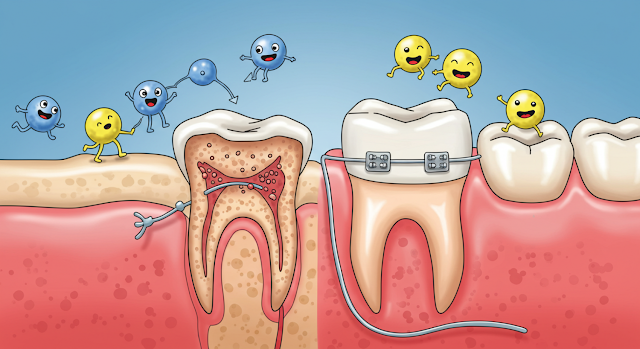I want to tell you about a friend of mine. Today, she’s this incredibly successful person, a YouTube creator with a massive following who helps people learn English. She’s bright, charismatic, and seems to have it all together. But if you’d met her a decade ago, you’d have seen a completely different picture.
She once described her internal world to me in a way I’ll never forget. “It’s like 100 people are screaming in my head all at once,” she said, “or like a dozen TVs are all blasting static at full volume. The ringing in my ears is deafening.” She felt like she was navigating life in a thick fog, blindfolded, walking along the edge of a cliff. That’s the kind of profound, gut-wrenching pain that only someone who’s been there can truly understand. Her story isn’t just a story; it’s a testament to the struggle and a beacon of hope for anyone feeling lost in the chaos of Adult ADHD. Let’s walk through it together. 😊
The Daily Battle: What Adult ADHD *Actually* Feels Like 🧠
Before we get into the clinical definitions and the science, I think it’s crucial to talk about the lived experience. Because ADHD isn’t just a list of symptoms in a textbook; it’s the texture of your everyday life. For my friend, it was a constant, uphill battle against an invisible force.
She wasn’t diagnosed until she was 26, though the signs were there all along. Growing up, she was the “fidgety” kid, the one who was always getting gently scolded for being disruptive in class. She told me she never, not once, managed to turn in a major school project on time. Yet, through sheer force of will, she graduated from university and landed a coveted job at a huge corporation.
That’s when the wheels really started to come off.
“The hardest part was time management,” she explained. “People with ADHD perceive time differently. I would genuinely believe I was getting ready early, that I had all the time in the world, and then I’d look up and I was somehow 15 minutes late. Every. Single. Time.” It wasn’t about being disrespectful; her internal clock was just wired differently.
The mistakes at work were relentless. It wasn’t big, dramatic failures, but a constant stream of small, frustrating errors. An incorrect number in a critical sales spreadsheet. Forgetting to attach the file to an important email. These things happen to everyone, of course. But with ADHD, it’s a pattern. It’s persistent.
“My coworkers were saints,” she admitted. “They’d try to help me, to double-check my work, but that just meant they couldn’t get their own work done. And if they didn’t watch over me, I’d just make the same mistakes again.” The weight of being a burden, combined with the shame of constantly messing up, was crushing. She quit after just seven months.
The Official Rundown: De-Mystifying Adult ADHD Symptoms 📋
So, what’s actually going on here? My friend’s story paints a vivid picture, and it aligns perfectly with what experts identify as the core symptoms of Adult ADHD. It’s so much more than just being “hyper.” In fact, for many adults, the hyperactivity is less physical and more of an internal, buzzing restlessness.
Attention Deficit Hyperactivity Disorder (ADHD) is a neurodevelopmental condition. That’s just a fancy way of saying the brain’s development and function in certain areas are different, specifically in the prefrontal cortex, which is like the CEO of your brain—responsible for planning, focus, and impulse control. It’s often caused by an imbalance in key neurotransmitters like dopamine and norepinephrine.
Let’s break down how this actually shows up in adult life. It’s often a tale of two extremes.
| Common Misconception (The “Hyper Kid”) | Adult Reality (The Internal Struggle) |
|---|---|
| Can’t sit still, runs around the classroom. | Internal restlessness, fidgeting in meetings, feeling easily bored, constantly needing stimulation. |
| Can’t focus on anything. | Struggles with boring tasks, but can “hyperfocus” for hours on things they find interesting (video games, hobbies). |
| Blurts things out, very obviously impulsive. | Impulsive spending, frequently interrupting others, making snap decisions without thinking through consequences, addiction vulnerabilities. |
| Is just being naughty or difficult. | Struggles with intense emotional responses, hypersensitivity to criticism, low self-esteem from a lifetime of feeling “different.” |
The Focus Paradox: Inattention vs. Hyperfocus
This is one of the most misunderstood parts of ADHD. It’s not a deficit of attention, but rather an inconsistent regulation of attention. This can look like:
- Struggling to finish even simple tasks because your mind wanders.
- Making careless mistakes because you overlook details.
- Getting easily sidetracked by a random noise or thought.
- But also… getting so absorbed in a book, a video game, or a creative project that you completely lose track of time and forget about everything else. This is hyperfocus.
The Chaos Coordinator: Organization & Memory
This is the “living in a fog” part. Your brain’s CEO is on a coffee break, so the office is a mess. Sound familiar?
- Your desk, car, or even your whole room feels perpetually disorganized.
- You chronically underestimate how long tasks will take.
- You’re often late, even when you have the best intentions.
- You constantly lose your keys, wallet, or phone.
The Emotional Rollercoaster You Didn’t Sign Up For
This is a huge one for adults. Years of feeling like you’re failing, being misunderstood as “lazy” or “spacey,” takes a serious toll. This is often called Rejection Sensitive Dysphoria (RSD), though it’s not an official diagnosis. It manifests as:
- Intense mood swings and a quick temper.
- Extreme sensitivity to criticism, real or perceived.
- Low self-esteem and a deep sense of underachievement.
- Feeling easily frustrated and overwhelmed by life’s demands.
“Is This a New Thing?” The Rise of Adult ADHD Awareness 📈
It seems like everyone is talking about Adult ADHD these days, right? It’s not because it’s a new fad. ADHD has always been here. The truth is, we’ve just gotten much better at recognizing it.
For a long time, ADHD was seen as a childhood disorder that kids, mostly boys, would just “grow out of.” We now know that’s not true. About 50% of kids with ADHD will carry significant symptoms into adulthood. That’s one in two!
The main reasons for the “surge” in adult diagnoses are:
- Increased Awareness: Thanks to the internet and people bravely sharing their stories (like my friend!), more adults are seeing their own lifelong struggles reflected back at them and thinking, “Wait a minute… that’s me.”
- Better Diagnostics: The medical community now understands that ADHD looks different in adults. The diagnostic criteria were even updated in 2013 to better reflect this.
- Missed Inattentive Cases: The “inattentive” type of ADHD (what used to be called ADD) doesn’t have the classic hyperactivity. These were the “quiet daydreamers” in class who weren’t disruptive, so they flew under the radar. As adults, when life demands more complex planning and organization, their struggles become impossible to ignore.
While self-assessment tools like the Adult ADHD Self-Report Scale (ASRS) can be a helpful starting point, they are not a diagnosis. If you suspect you have ADHD, it is absolutely critical to consult a qualified professional, like a psychiatrist or psychologist, for a proper evaluation. Don’t try to go it alone!
The Uninvited Plus-Ones: ADHD and Co-occurring Conditions 🤝
ADHD rarely travels alone. It loves to bring friends to the party, and unfortunately, these “friends” are often anxiety, depression, and addiction issues. The statistics are pretty staggering: research shows that a whopping 84% of adults with ADHD have at least one other co-occurring condition. More than half have two or more.
This makes perfect sense when you think about it. Imagine spending your life feeling like you can’t keep up, that you’re constantly disappointing people, and that simple tasks for others feel like climbing a mountain for you. It’s a recipe for:
- Anxiety Disorders: Constant worry, panic attacks, and obsessive thoughts can stem from the chaos and unpredictability of an ADHD brain.
- Depression: The cumulative effect of low self-esteem, frustration, and social or professional failures can easily lead to depression.
- Substance Use Issues: Some people with ADHD may self-medicate with alcohol or other substances to quiet the “noise” in their heads or to seek the stimulation their brain craves.
This is why a comprehensive diagnosis is so important. Treating just the ADHD without addressing the depression, or vice versa, is like trying to fix only half of a leaky pipe.
📋 Quick Summary
ADHD is a real medical condition related to brain function and chemistry, not a character flaw.
Adult ADHD often presents as internal restlessness, disorganization, and emotional issues, not just hyperactivity.
A combination of medication and therapy can be life-changing, helping to manage symptoms and build skills.
With the right strategies and support, it’s entirely possible to build a successful and fulfilling life with ADHD.
The Comeback Story: How to Thrive with ADHD ✨
Okay, so we’ve covered the bad and the ugly. Now for the good part. The hopeful part. This is not a life sentence of chaos. Let’s go back to my friend’s story.
She hit rock bottom. She had a terrifying moment of clarity where she thought, “If I keep living like this, I’m going to end up as a total outcast, a failure who can’t function in society.” That fear became her fuel. It propelled her to a doctor’s office, and she made a commitment to change. She quit drinking and started her journey toward healing.
Step 1: The Power of Treatment
For many, treatment is a two-pronged approach:
- Medication: ADHD medications, like stimulants (e.g., Methylphenidate) or non-stimulants, work by helping to balance the brain’s neurotransmitters. They don’t “cure” ADHD, but they can dramatically improve focus and impulse control. My friend described the first time her medication worked as a revelation. She said people often report back to their doctors saying, “Is this how everyone else has been living this whole time? The world is so quiet and calm.”
- Cognitive Behavioral Therapy (CBT): This is the skills-building part. Medication can clear the fog, but CBT teaches you how to navigate the now-clear path. A therapist can help you develop practical strategies for time management, organization, planning, and—critically—emotional regulation.
Step 2: Building a Life That Works *For* Your Brain
Treatment is the foundation, but building a better life is about conscious, daily effort. My friend didn’t magically become organized overnight. She started small.
“I learned to find satisfaction in completing one tiny thing,” she told me. “Even if it was just processing one simple document, or taking a walk outside. Accomplishing anything, no matter how small, made me feel better and gave me the momentum to do the next thing.”
ADHD Life-Hacks & Strategies 📝
Here are some of the practical strategies, inspired by my friend’s journey and expert recommendations, that can make a huge difference:
- Externalize Everything: Your brain isn’t great at holding information, so don’t ask it to. Use a planner, a digital calendar, sticky notes, and phone reminders for everything.
- Create a “Launch Pad”: Have one single spot by the door—a bowl, a hook, a small table—where your keys, wallet, and phone ALWAYS go. No exceptions.
- The 5-Minute Rule: If a task takes less than five minutes, do it immediately. Don’t let it join the pile of “I’ll do it later.”
- Identify Your Patterns: Notice what mistakes you repeat. Do you always forget to pack your lunch? Set a recurring phone alarm for 10 PM to remind you.
- Carry a Fidget: Have a small, discreet object in your pocket you can squeeze or manipulate during stressful situations or long meetings. It helps regulate that restless energy.
The most important shift for her was letting go of the past. “I can’t go back in time,” she says. “Dwelling on past mistakes and regrets is a trap. The only thing that matters is moving forward.”
Frequently Asked Questions ❓
My friend’s final message is one I want to leave you with. She said, “If someone out there is feeling the way I used to, they are truly in hell. And I wish I could reach out and pull them out of it. So I want to tell them one thing, one fact: You can fix this. It is possible to get better. I am living proof.“
There is an end to the fog. I promise. What are your thoughts or experiences with this? I’d genuinely love to hear them in the comments below. Let’s support each other. 😊





